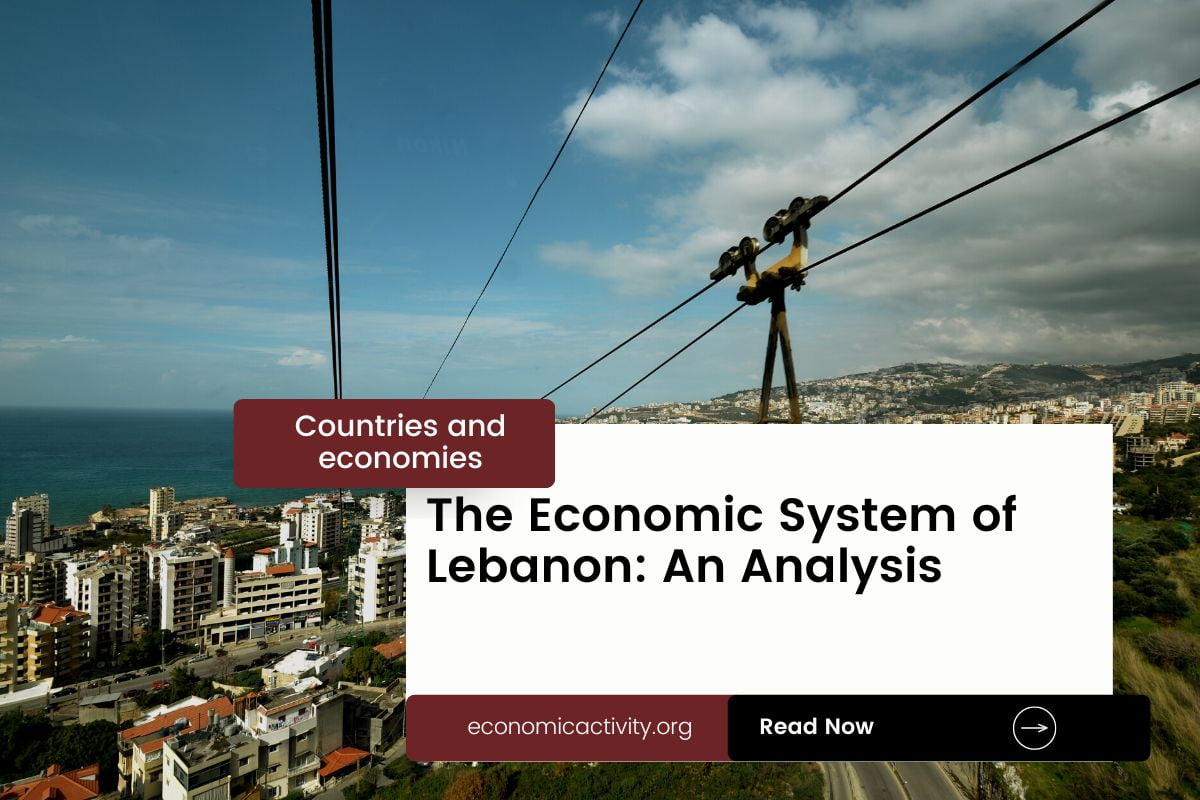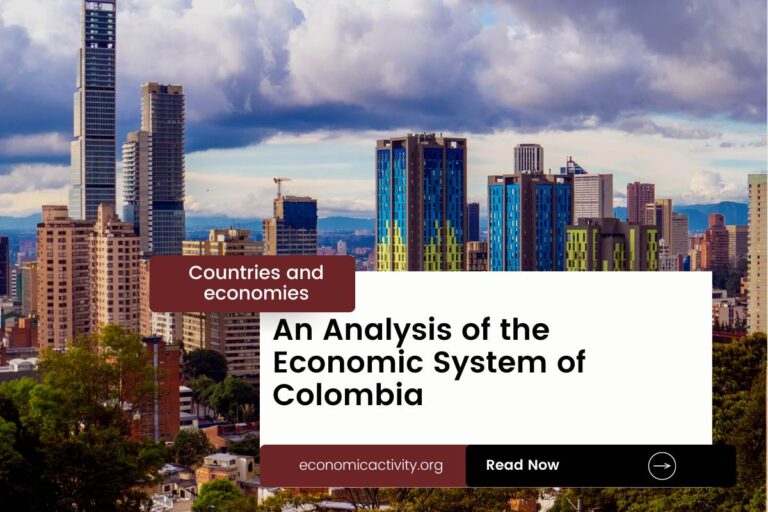What is the economic system of Lebanon? The economy of Lebanon is based on a mixed economy. The country’s economic system combines elements of a market economy and a planned economy.
Lebanon’s economy is service-oriented, with banking, tourism, and real estate being major sectors. Agriculture and industry also contribute but are limited.
In Lebanon, the economy is composed of a private sector, consisting of individuals and businesses that make autonomous decisions based on self-interest, and a public sector, where the state determines the production and distribution of certain goods and services. No country is purely capitalist or purely communist.
What do the freedom indexes tell about the economic system of Lebanon?
Now, to determine if a country is mostly a market economy or a planned economy, it is useful to examine some economic indexes. For instance, according to the 2022 Index of Economic Freedom, which measures the ability of every human to control his own labor and property, Lebanon is ranked 162th globally and 12th in the Middle East and North Africa indicating that the country has a repressed economy.
In a similar way, the 2022 Freedom House index evaluates the state of political rights and civil liberties globally. Generally, market economies tend to align more with democracy and freedom, while command economies tend to be characterized by greater state control and fewer democratic and civil liberty protections. Lebanon gets a score of 42/100, which qualifies it as Partly Free.
Lebanon is considered to have a government that does not control what people do, and people can make their own economic decisions, but it is only considered an electoral democracy, lacking full liberal democratic protections.
The Link Between Public Sector Employment and the Economic System of Lebanon
An indicator of the extent to which the State is involved in the economy is the number of public sector employees. In Lebanon, according to ILOSTAT, the number of public sector employees as a percentage of the total workforce is 18.9% (2021).
In the country’s mixed economy, the number of public sector employees as a percentage of the total workforce varies based on the specific policies and practices adopted by the State. Some economic activities are left to the private sector while others are under government control. The bigger the public sector the closer is the economy to being a command economy.
What do the biggest companies in Lebanon say about the country’s economic system?
The biggest company in Lebanon should also be looked at, as well as whether it is a state-owned or private company. In this case, Bank Audi is a leading financial institution in Lebanon, offering banking, investment, and insurance services. Founded in 1830, it is the largest bank in Lebanon. The company is owned by multiple private shareholders:
| SHAREHOLDERS/GROUPS OF SHAREHOLDERS | COUNTRY (ULTIMATE ECONOMIC OWNERSHIP ) | PERCENTAGE OWNERSHIP (1) % |
| FRH Investment Holding SAL | Lebanon | 12.25% |
| Sheikh Dheyab Bin Zayed Bin Sultan Al-Nahyan | United Arab Emirates | 7.96% |
| Al-Hobayb Family(2) | Kingdom of Saudi Arabia | 5.87% |
| Audi Family(2) | Lebanon | 5.01% |
| Family of Late Sheikha Suad Hamad Al Saleh Al Homaizi | Kuwait | 4.42% |
| Akig Investment Holdings Ltd | Iraq | 4.26% |
| Phoenicia Enterprises S.A | Lebanon | 3.37% |
| Al-Sabah Family(2) | Kuwait | 3.21% |
| European Bank for Reconstruction and Development – EBRD | 2.90% | |
| Ali Ghassan El Merhebi Family | Lebanon | 2.78% |
| Kel Group | Lebanon | 2.49% |
| Mohammed Bin Dhoheyan Bin Abdul Aziz Al Dhoheyan | Kingdom of Saudi Arabia | 2.37% |
| Investment & Business Holding SAL | Lebanon | 2.30% |
| Imad Ibrahim Itani | Lebanon | 1.88% |
| International Finance Corporation – IFC | 1.70% | |
| Executives and Employees(3) | Lebanon | 1.45% |
| Others | 14.23% | |
| Global Depositary Receipts (“GDRs”) (4) | 21.55% | |
| Total shareholding (5) | 100.00% |
Lebanon’s private sector industries include banking, tourism, real estate, and telecommunications. The public sector industries include healthcare, education, and transportation.
The historical factors that have influenced the economic system of Lebanon
The current mixed economy system of Lebanon is the result of the country’s colonial history, its strategic location, and its diverse population. The French mandate of the 1920s and 1930s, the influx of refugees from neighboring countries, and the country’s reliance on foreign aid have all contributed to the current economic system.
Additionally, the country’s reliance on the service sector and its limited resources have also played a role in shaping the country’s economic system.





Leave a Reply